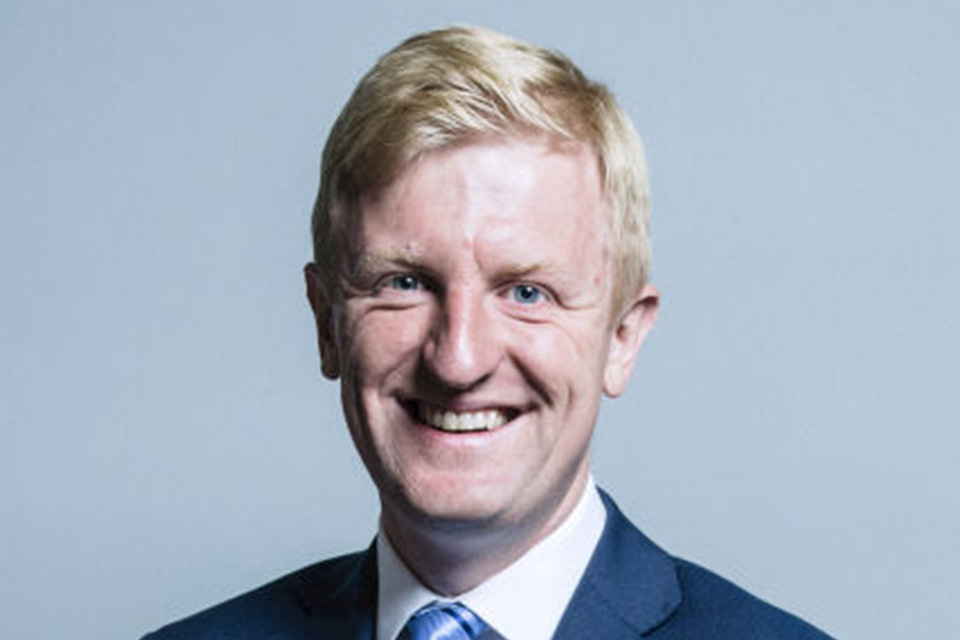Oliver Dowden's Opinion Piece for The Telegraph on the Online Safety Bill
The Digital Secretary has laid out the scope of the new Bill — to keep people safe online, tackle illegal and harmful content and protect freedom of expression.

This article was originally published in The Telegraph on 11 May 2021.
“The internet is an amazing thing, and has totally redefined how we connect and communicate. But if platforms like Facebook and Twitter are the new town square, then that square is in serious need of a clean-up.
In the last few weeks we’ve seen footballers leading a mass boycott of social media to protest abhorrent racist abuse. Women are trolled and threatened on a daily basis. Children are exposed to cyberbullying, sexual grooming and suicide content.
At the same time, there are legitimate concerns that social media platforms have arbitrarily silenced or blocked users - giving tech companies vast power over one of our core democratic rights, freedom of expression.
We wouldn’t accept this in the real world, and we shouldn’t accept it online.
So today the government is publishing history-making legislation that will finally bring accountability to the online world. Every country in the world is grappling with this issue, and it was an issue that occupied a lot of my recent digital summit with G7 partners.
This week, the UK is leading the way in solving it - and we are doing so by putting British values at the heart of our legislation. This country has a long and proud tradition of striking the balance between protecting people, particularly the young and vulnerable, while protecting fundamental freedoms.
This legislation is very much in that tradition. It will keep our kids safer online, but it won’t be a censor’s charter.
So what is actually in the bill? The Telegraph has valiantly led the charge on online safety - doing so much through its Duty of Care campaign to highlight the risks the internet poses to the youngest members of society. Our strongest measures are to protect them.
Under our draft legislation, social media companies will have to take steps to shield young users from illegal activity online as well as inappropriate and harmful content, like pornography or self-harm material.
If they fail to do so, for example, they’ll face steep fines of up to 10 percent of their global turnover - which could mean billions. They could also see their websites blocked.
And it’s not enough for a company like Whatsapp to set a minimum age limit and fail to enforce it. We wouldn’t allow an 11-year-old to walk into a corner shop and buy some cigarettes simply by claiming they were over 18. And yet underage children routinely skirt age limits online by declaring they’re old enough, no further questions asked.
That will no longer fly under our legislation.
At the same time, platforms will have to take swift and effective action to remove criminal posts, including child sexual abuse and terrorist material. If it’s illegal offline, it’s illegal online.
Meanwhile, it’s time to finally turn the tide on racist, misogynistic and anti-semitic abuse. Enough is enough. We’re all sick to death of the bile and the threats.
If it’s illegal, platforms like Facebook and Twitter will have to flag and remove online abuse quickly and effectively, or face the consequences. The same goes if it breaches their terms and conditions. No more excuses.
Finally, we need to defend one of the cornerstones of our democracy: freedom of expression. Right now, social media companies can turn off free speech at the flick of a switch.
The last thing we want is for users or journalists to be silenced on the whims of a tech CEO or woke campaigners. So this legislation also includes strong safeguards for free speech - including a new general requirement for social media companies to protect freedom of expression when moderating content. If someone feels their content has been taken down unfairly, they’ll have the right to appeal.
We’ve also placed a protective bubble around journalistic and “democratically important” content. News publishers’ content won’t be in scope - whether it’s on their own sites or on other online services.
The largest platforms will also have to protect posts on areas of political controversy, and companies won’t be able to discriminate against particular political viewpoints.
Taken in full, this bill represents one of the most comprehensive and balanced responses to the digital revolution since technology began transforming our lives three decades or so ago. We’re entering a new age of accountability for tech - for the good of everyone who uses it.”